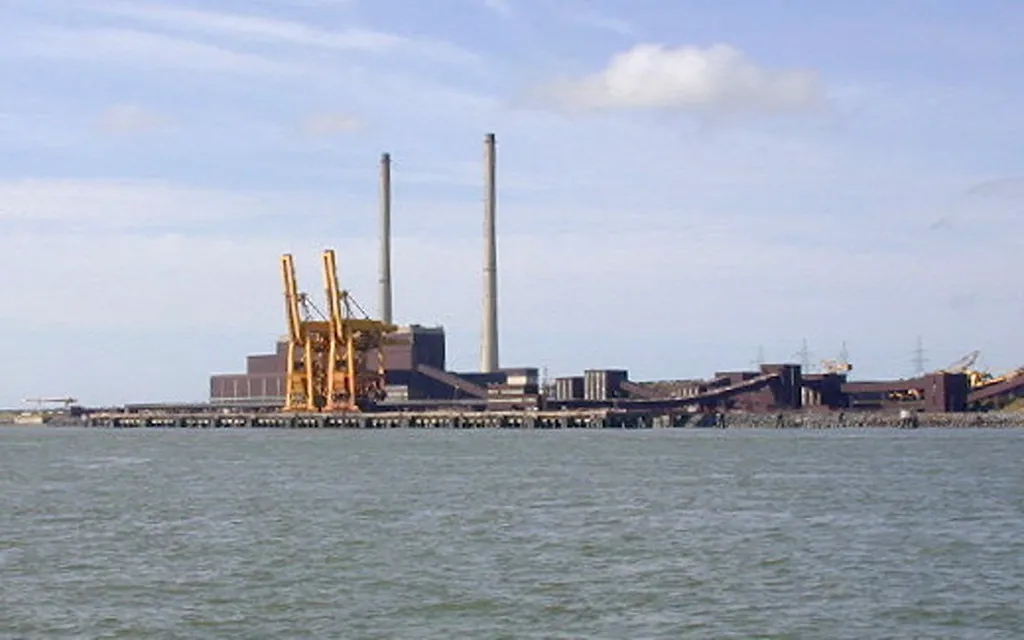Ireland has taken a significant step in its energy transition by ceasing coal-fired electricity generation. The country’s last coal-fired unit at the Moneypoint power station, operated by ESB, has been converted to use heavy fuel oil. This marks the end of a 40-year era of coal burning at the 305-MW Unit 3, which was part of a station that once supplied about one-third of Ireland’s total power needs.
The Moneypoint station, located on Ireland’s southwest coast, originally had three coal-fired units, each with a capacity of 305 MW, totaling 915 MW. The conversion of Unit 3 aligns with Ireland’s broader strategy to phase out fossil fuels for power generation. EirGrid, the grid operator, will now dispatch the converted unit under direct instructions as part of the balancing market, ensuring grid stability during the transition.
The plant will operate under emergency instructions until 2029, when it is scheduled for permanent closure. This closure is a crucial part of Ireland’s plan to eliminate fossil fuels from its power generation mix. An Bord Pleanala, Ireland’s energy planning group, approved ESB’s plan to exit coal in October 2022. This move positions Ireland among at least 15 European countries that have stopped burning coal for power generation, with another 10 committed to exiting coal by 2030.
Timmy Dooley, minister of Ireland’s Department of Climate, Energy and the Environment, hailed the milestone. “The early end of coal generation at Moneypoint represents a significant milestone for ESB and is another important step in Ireland’s energy transformation,” Dooley stated. He emphasized the role of the local community and the future of the site as a renewable energy hub. “It is the people of the Mid-West that have made this possible and I am delighted that the site will continue to play a critical role in securing Ireland’s electricity supply for a number of years to come, before transforming into a renewable energy hub to meet the future zero carbon needs of the country.”
Cathal Marley, CEO of EirGrid, echoed the significance of the shift. “Today is a significant milestone for our electricity system, marking the end of coal generation at Moneypoint and in Ireland,” Marley said. He underscored the need for a secure supply of electricity during the transition to renewable energy. “EirGrid has been tasked with delivering a renewable-led electricity transmission system, which will benefit our economy and society, requiring the delivery of an unprecedented level of upgrades and new infrastructure.”
The transition away from coal is part of a broader European trend. Countries across the continent are accelerating their efforts to reduce carbon emissions and increase the share of renewable energy in their power mix. Ireland’s move to convert and eventually close the Moneypoint plant reflects a strategic approach to energy security and sustainability.
The Green Atlantic plan, announced by ESB in 2021, outlines a multi-billion euro investment to transform the Moneypoint site into one of Ireland’s largest renewable energy hubs. This initiative leverages the site’s deepwater port and existing power transmission and distribution infrastructure. The first phase of the Green Atlantic plan was completed in 2022 with a €50 million investment in Ireland’s first synchronous compensator, a zero-carbon technology that supports the integration of more renewable energy into the grid.
Ireland currently receives about one-third of its electricity from renewable energy resources, primarily wind power. The country relies heavily on natural gas for power generation and imports electricity from the UK via three 500-MW interconnections. The upcoming Celtic Interconnector from France, scheduled to start up in 2026, will further enhance Ireland’s energy import capabilities.
The end of coal-fired electricity generation in Ireland signals a pivotal moment in the country’s energy landscape. As the sector evolves, the focus will shift towards integrating more renewable energy sources and ensuring a stable and secure electricity supply. The conversion of Moneypoint and the planned closure by 2029 will set a precedent for other countries looking to transition away from fossil fuels. The success of this transition will depend on continued investment in renewable energy infrastructure, grid modernization, and community engagement. The future of Ireland’s energy sector lies in its ability to adapt and innovate, paving the way for a sustainable and resilient energy system.

